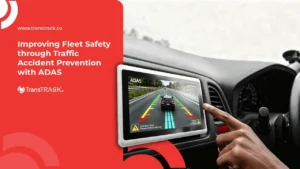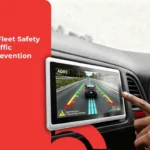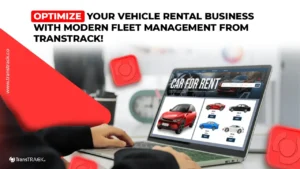Discover Various Types of Car Lights!
Posted on April 15, 2024 by Nur Wachda Mihmidati

In the automotive world, car lights are not only an aesthetic element, but also a crucial component in maintaining driving safety. Not only do they provide light to see at night, but they also play a role in signaling and clarifying the vehicle’s position on the road. From distant lights that provide bright light at night to brake lights that warn motorists behind, each type of light has its own specific function in creating a safe and comfortable driving experience. In this article TransTRACK, we will explore the different types of car lights and their roles and benefits in driving safety and comfort.
Types of Car Headlights Based on Light Intensity
Here are three types of car lights based on light intensity:
Halogen
Halogen lights are the most commonly used type of car lights. They use a tungsten filament inside a bulb filled with halogen gas. As electric current passes through the filament, the filament heats up and produces light. Although they tend to be cheaper, halogen bulbs tend to have lower light intensity than HID or LED.
High Intensity Discharge (HID)
HID lamps use gas and high voltage to produce light. They have a higher light intensity than halogen bulbs and tend to provide brighter and farther light. However, they can take time to reach full brightness once switched on.
Light Emitting Diodes (LED)
LED lights use semiconductor diodes to produce light. They have high light intensity, low energy consumption, and a longer lifespan than halogen or HID lights. LED lights can also provide brighter and more focused light, making them a popular choice for the front and rear lights of cars. However, they tend to be more expensive than halogen or HID lights.
Types of Car Lights and Their Functions
Here are the types of car lights and their functions:
High Beam
- Used to provide very bright light to the front of the car.
- Usually used on dark, straight roads, or when there are no other vehicles ahead.
- Helps drivers see the road clearly in dark conditions or at high speeds.
Low Beam
- Provides enough light to see the road ahead without distracting other drivers on the same road.
- Creates a zone of focused, non-dazzling light, allowing other motorists to see clearly.
Dusk Lights (City Lights)
- Provides a small amount of light sufficient for minimal visibility when parking or walking around the car at night.
- Can help drivers see around the car before entering or leaving the car.
Tail Lights (Stop Lamp)
- A red light that comes on when the driver applies the brakes.
- Gives warning to drivers behind that the car is stopping or slowing down.
- Important for safety as it helps prevent rear-end collisions.
Fog Lamp
- Used in fog or heavy rain conditions to improve visibility in front of the car.
- Located low on the front bumper to reduce light reflections that can distract other drivers.
Brake Light
- Similar to tail lights, but its function is only to provide a warning that the car is stopping or slowing down.
- It is important to provide information to drivers behind about the behavior of the car in front of them.
Turn Signal Lamp
- Signaling the direction in which the car will turn or change lanes with flashing lights at the front and rear.
- It is important to inform other motorists of the driver’s intentions to avoid accidents or confusion on the road.
Hazard lights
- Lights that illuminate simultaneously in all directions to give other motorists an emergency warning that the vehicle is facing an emergency situation or a sudden stop.
- Used when the car has a breakdown or other emergency to improve visibility and safety.
Reverse Lights
- Lights up when the car is backing up, signaling to drivers behind that the car is moving backwards.
- Helps reduce the risk of collision when backing out of parking lots or other confined spaces.
Cabin Lights
- Provides light inside the car cabin, such as ceiling lights, reading lights, or trunk lights.
- Make it easier for passengers to see inside the car at night or when lighting conditions are poor.
When considering the importance of lights in driving safety and comfort, there is no better time to ensure your car’s lights are in optimal condition. By using TransTRACK’s Vehicle Maintenance System, you can easily monitor and manage the maintenance of your lights and other vehicle components. Keep your car’s lights bright and safe, and ready to accompany your every trip. Schedule your headlight maintenance today with TransTRACK and enjoy better driving safety and comfort.
Topic :
Recommended Articles

Improving Fleet Safety through Traffic Accident Prevention with ADAS
Featured Product | February 12, 2026
 Bahasa Indonesia
Bahasa Indonesia







